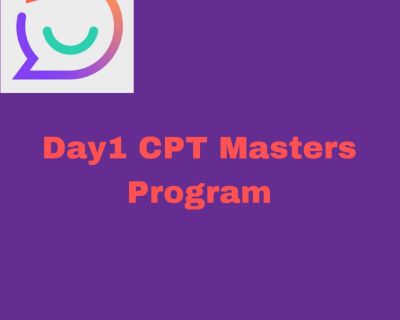The IELTS Speaking Test is a critical component of the IELTS exam, assessing your ability to communicate effectively in English. Time management is essential for success in this test, as it enables you to organize your thoughts, deliver comprehensive answers, and avoid running out of time during the exam.
In this article, we’ll explore the importance of time management in the IELTS Speaking Test and provide practical tips to help you maximise your performance.
1. Understand the Format and Timing of the IELTS Speaking Test
The first step in mastering time management in the IELTS Speaking Test is to familiarize yourself with the format and timing of the exam. The test consists of three parts, each with specific time constraints:
- Part 1 (4-5 minutes): The examiner asks you general questions about yourself and familiar topics.
- Part 2 (3-4 minutes): You receive a cue card with a topic, prepare for one minute, and then speak for up to two minutes.
- Part 3 (4-5 minutes): The examiner asks you more in-depth questions related to the topic from Part 2.
By understanding the overview, format, and scoring details of the IELTS Speaking Test, you can better plan your responses and manage your time effectively during the exam.
2. Practice Timing Your Responses
Practicing timed responses is crucial for honing your time management skills. Set a timer and practice answering questions in the allotted time for each part of the Speaking Test. This will help you become more aware of the time constraints and train you to deliver concise, well-structured answers.
You can find helpful tips for practicing on your own in our dedicated blog post. For example, practice speaking for exactly two minutes for Part 2, ensuring that you can deliver a coherent and complete response within the time limit.
3. Develop a Structure for Your Responses
Having a structure for your responses can greatly improve your time management during the Speaking Test. A clear structure allows you to organize your thoughts quickly, ensuring that you cover all the necessary points without wasting time.
In Part 2, use the one-minute preparation time to outline a simple structure for your response, including an introduction, main points, and a conclusion.
In Parts 1 and 3, practice using a structure that allows you to answer the questions concisely and directly.
For instance, when answering a question about your favorite hobbies, you could structure your response as follows:
- Introduce your main hobby.
- Explain why you enjoy it.
- Share any memorable experiences related to your hobby.
- Conclude by mentioning any other hobbies you have.
Organising your response structure will really help you stabilise your nerves as well throughout the course of the test.
4. Use Linking Words and Phrases
Incorporating linking words and phrases into your speech can help you manage your time more effectively by ensuring that your thoughts flow coherently and logically. These words and phrases act as signposts, guiding your listener through your response and allowing you to transition smoothly from one point to the next.
For example, you could use linking words such as “firstly,” “secondly,” “in addition,” “however,” and “finally” to structure your response and connect your ideas.
5. Avoid Lengthy Pauses and Fillers
Eliminating lengthy pauses and filler words (e.g., “um,” “like,” “”you know”) from your speech can help you manage your time more effectively during the IELTS Speaking Test. Instead of using fillers, practice pausing briefly and silently to gather your thoughts.
This not only saves time but also demonstrates fluency and confidence in your speech. Check out our tips for improving fluency in English to enhance your speaking skills further.
6. Adapt to Unexpected Questions
During the IELTS Speaking Test, you may encounter unexpected or difficult questions. To manage your time effectively, it’s crucial to stay composed and quickly adapt to these questions without letting them disrupt your overall performance.
Develop strategies for answering difficult questions, such as restating the question, giving yourself a few seconds to think, or providing a general response if you’re unsure of the specifics.
7. Balance Depth and Brevity in Your Responses
While it’s essential to provide detailed, comprehensive answers in the Speaking Test, it’s also important to balance depth with brevity to manage your time effectively.
Avoid going off on tangents or providing excessively long responses, as this can cause you to run out of time or lose focus on the main topic. Focus on providing relevant, concise information that directly addresses the question.
8. Monitor Your Pace
Maintaining an appropriate pace while speaking is crucial for effective time management during the IELTS Speaking Test. Speaking too quickly can make it difficult for the examiner to follow your ideas and may lead to errors in pronunciation and grammar.
On the other hand, speaking too slowly can cause you to run out of time before completing your response. Check out our tips on speaking at the right pace to find the perfect balance for your speech.
9. Practice Mock Tests
Taking IELTS Speaking mock tests is an excellent way to improve your time management skills. Mock tests simulate the real exam experience, allowing you to practice delivering your responses under the same time constraints you’ll encounter on test day.
Regularly taking mock tests will help you become more comfortable with the timing of the Speaking Test and enable you to gauge your performance under pressure.
10. Utilize Online Resources
There are numerous online resources available to help you develop your time management skills for the IELTS Speaking Test. These resources include practice questions, video lessons, and interactive exercises that can help you become more confident and proficient in managing your time during the exam.
In conclusion, effective time management is essential for success in the IELTS Speaking Test. By understanding the format and timing of the exam, practicing timed responses, developing a structure for your answers, and incorporating linking words and phrases, you can ensure that you deliver comprehensive, well-organized responses within the allotted time.
Additionally, honing your ability to adapt to unexpected questions, balancing depth and brevity in your responses, monitoring your pace, and utilizing mock tests and online resources will further enhance your time management skills and set you on the path to IELTS Speaking Test success.

















